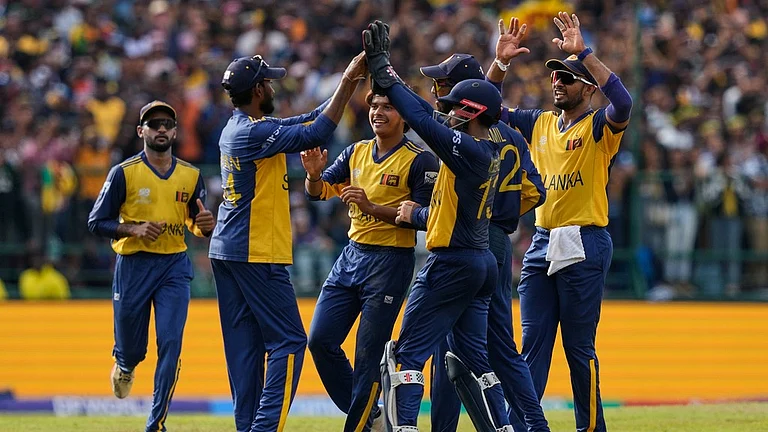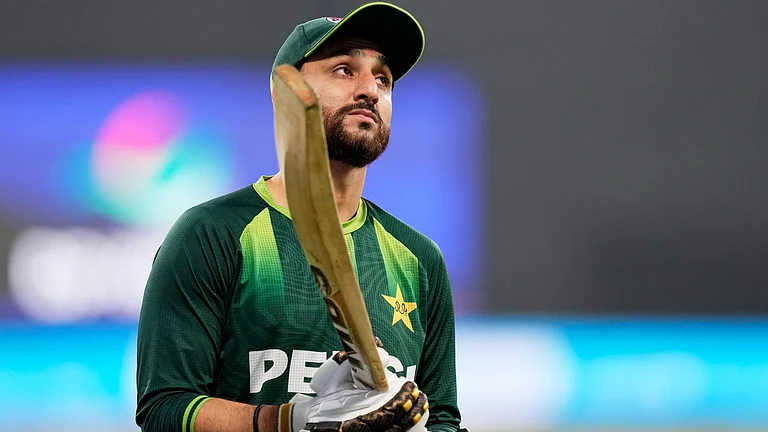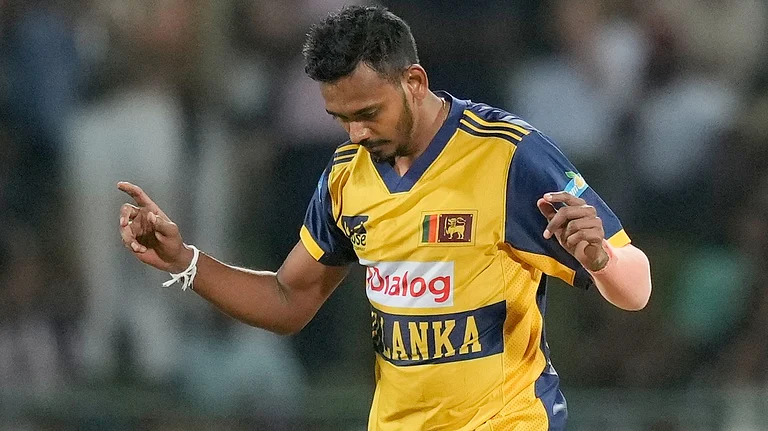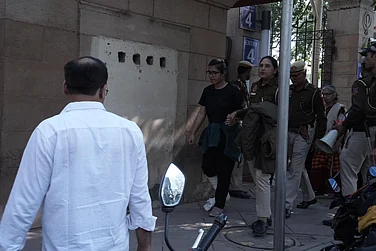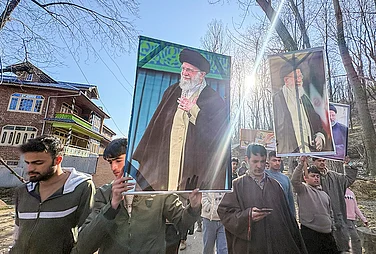T Yanadhan was born a refugee in 1991, away from what was home to him, in a camp in Pavalathanur in Salem district. His Sri Lankan parents along with his elder brothers fled the country in 1990 due to the bloody civil war. Yanadhan and thousands of other Tamil Sri Lankan refugees hoped that India would grant them citizenship one day. When the contentious Citizenship Amendment Act was passed in 2019, Yanadhan sought permission to kill himself.
“For the past 28 years, I have been residing in the camp. We abide by Indian law and culture. Even though I am a refugee by birth, I am living as an Indian due to my love for the country…But I cannot live with mental agony," Yanadhan said in a petition to the district collector in 2019. The CAA, which aims to fast-track citizenship to persecuted non-Muslim minorities from Bangladesh, Pakistan, and Afghanistan, finds no mention of citizenship for Tamil refugees from Sri Lanka – an estimated 100,000 of them live as ethnic minorities in India. Many of them live in refugee camps in Tamil Nadu, bound to clutches of poverty and lack of citizenship.
Amid outrage, the central government in 2019 “promised” state (TN) authorities that Sri Lankan Tamils would be given dual citizenship. “HM promised the CM that changes would be made in the CAA at the right time for giving dual citizenship to Sri Lankan Tamil refugees,” an article that appeared in Tamil Nadu’s ruling All India Anna Dravida Munnetra Kazhagam’s (AIADMK) mouthpiece ‘Puratchithalaivi Namadhu Amma’ stated in 2019. However, the government’s notification on Monday did not make any reference to this minority group. “By betraying Muslims and Sri Lankan Tamils, they sowed seeds of division,” Tamil Nadu Chief Minister MK Stalin said on Monday, reiterating his opposition to the law.
Sri Lankan Tamils moved to India in the hope of a better life
There were multiple phases of exodus of Tamils from Sri Lanka into India, but they are broadly classified under two: those who came before 1983 and those who came after when ethnic riots broke out in the island nation. The former included Indian-origin Tamils whose forefathers were moved to the island nation by the British to work in the tea estates whereas the latter included those who fled anti-Tamil violence in the island nation.
As of today, more than 65,000 of them stay in 107 camps run by the Tamil Nadu government. At least 25,000 of them are children. While the state government provides Rs 1,000 every month to the head of the refugee family, 20 kg of rice every month and ration cards (among other doles), they continue to live under strict surveillance (especially by the Q branch of the Tamil Nadu police that was set up in the early 1970s to deal with organisations dealing with ‘extremist activities’).
They have some benefits, but almost no rights. For instance, they are allowed to live in Tamil Nadu but cannot approach a state agency for redressal of a grievance – leaving them in a state of limbo for the last 40 years.
Even those refugees who have been contemplating repatriation do not find the situation in Sri Lanka conducive enough for their return, though the civil war in Sri Lanka ended in May 2009, according to UNHCR. On 5 September 2022, the Sri Lankan Government appointed a committee to facilitate repatriation. But till the end of March 2023, the UNHCR Office in Chennai reported that only 39 people had returned. “The process of gaining citizenship in Sri Lanka is burrowed under bureaucratic red tape,” says Romeo Alfred Roy, a lawyer who works for Sri Lankan refugees.
He says that 90 per cent of refugees in these camps want Indian citizenship. In his interactions with refugees over the years, they told him how on one hand the refugees couldn’t emotionally relate to Sri Lanka because they were “beaten there” but what they consider as their home country – India – is branding them as refugees and asking them to go back.
Providing some data, Roy says, "Only 17,718 Tamil refugees went back to Sri Lanka in 2002-2020, but during 1983 -2001 there were 1,99,469 Tamil refugees who went back to Sri Lanka.This shows the declining trend and lack of will among Tamil refugees to return Sri Lanka."
Sri Lankan Tamil refugees are also ‘persecuted’: DMK
The CAA while excluding Sri Lankan Tamil refugees from its purview doesn’t provide any reason for doing so. In 2019, when asked why Tamils in Sri Lanka are not covered under CAB, Defence Minister Rajnath Singh said, "Tamils were not persecuted only for their religion in Sri Lanka. The Tamil issue was solved after a few years. There is a difference between confrontation and persecution."
The ruling DMK in Tamil Nadu contends that this is “step-motherly behaviour (of the Centre) towards Tamil refugees” which has left them living in constant fear of deportation and an uncertain future. “Not only the Tamils have faced religious persecution as they were predominantly Hindus, they have faced 'rampant persecution' due to their minority status since Sri Lanka's independence from British rule,” the party said in an affidavit filed at the Supreme Court in 2022.
Sri Lanka has the highest proportion of Hindus that live outside India, according to Pew Research Center.







